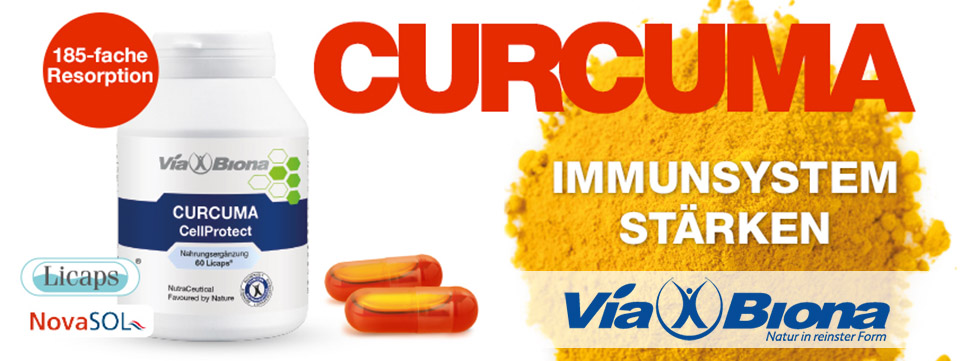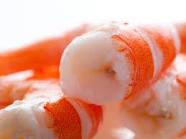Chitosan (griech. χιτών Hülle = Panzer) ist ein natürlich vorkommender celluloseähnlicher Faserstoff der überwiegend aus den Schalen von Krabben und Shrimps stammt. Das biochemisch als „Polymer“ bezeichnete Polysaccharid, leitet sich vom Chitin ab, das den Panzer zahlreicher Insekten, Schalen- und Krustentiere bildet. Interessant: Chitin ist neben Cellulose das am stärksten vertretene Polysaccharid der Erde. Chitosan wurde 1859 entdeckt und aufgrund seiner bemerkenswerten Fähigkeit der Fettbindung seit vielen Jahren unterstützend bei der Gewichtsreduktion, der Regulation der Blutfettwerte sowie in verschiedenen Medizinprodukten und Medikamenten als so genanntes Lipidadsorbens (Lipidbinder) eingesetzt.
Anwendungsbereiche und Wirkungen
Anwendungsbereiche
- Gewichtsreduktion
- Senkung erhöhter Blutfettwerte (Cholesterin u.a.)
Wirkungsweise
Fettbindung
Chitosan geht mit Lipiden (Fette) und Cholesterin aus der Nahrung eine unverdauliche Verbindung ein. Die Fette werden danach über den Darm ausgeschieden ohne in den Energiestoffwechsel einzugehen.
Biochemisch gesehen passiert das Folgende: Die positiv ionisch geladenen Aminogruppen des Chitosans verbinden sich mit den negativ geladenen Fettmolekülen in einem irreversiblen Prozess (nicht rückgängig machbar). Dieser Komplex kann von den menschlichen Verdauungsenzymen nicht gespalten werden und wird ausgeschieden, ohne dass die Komponenten vom menschlichen Blutkreislauf aufgenommen werden. Die Besonderheit am Ballaststoff Chitosan ist im Vergleich zu anderen Ballaststoffen seine herausragend hohe Fettbindekraft.
Senkung erhöhter Cholesterinwerte
Hypercholesterinämie ist ein starker Risikofaktor für Herz-Kreislauf-Erkrankungen wie Arteriosklerose. Oral verabreichtes Chitosan bindet neben Lipiden auch Cholesterin im Dünndarm und verringert ihre Absorption. Eine große Anzahl von Studien hatten zum Ergebnis, dass Chitosan die Fähigkeit besitzt, das “schlechte” LDL-Cholesterin zu senken und das “gute” HDL-Cholesterin zu fördern. Eine norwegische Studie zeigte 1991 eine 67%ige Verringerung des Serum-Cholesterins. Eine 1995 durchgeführte Studie berichtete von einer 54%igen Reduzierung von Cholesterin im Blut und einer 64%igen Reduzierung in der Leber.
Zufuhrempfehlung und Einnahmehinweise
Zufuhrempfehlung
Täglich werden zweimal 500 mg Chitosan empfohlen, am besten auf die zwei fettreichsten Mahlzeiten verteilt.
Gegenanzeigen
Menschen, die auf Schalentiere allergisch reagieren, sowie Schwangere und Stillende sollten Chitosan nicht verzehren.
Hinweise zur Einnahme
Der Verzehr von Chitosan wird als Kur über einen Zeitraum von 6 Monaten empfohlen.
Literaturquellen
1. Ausar S.F., D., Badini R.G., Castagna L.F., Modesti N.M., Landa C.A. & Beltramo: Characterization of casein micelle precipitation by chitosans J.Dairy Sci. 84 (2): 361-369 (2.2001)
2. Bailly J., Fleury A., Hadvary P., Lengsfeld H. & Steffen H.: Pharmaceutical composition containing chitosan. USA-Patent 6,030,955: 1-8 (29.2.2000)
3. Bokura H, Kobayashi S.: Chitosan decreases total cholesterol in women: a randomized, double-blind, placebo-controlled trial. Eur J Clin Nutr. 2003:57:721-5.
4. Deuchi K, Kanauchi O, Imasato Y, et al.: Decreasing effect of chitosan on the apparent fat digestibility by rats fed on a high-fat diet. Biosci Biotechnol Biochem. 1994 ; 58:1613–1616.
5. Deuchi K, Kanauchi O, Imasato Y, et al.: Effect of the viscosity or deacetylation degree of chitosan on fecal fat excreted from rats fed on a high-fat diet. Biosci Biotechnol Biochem. 1995;59:781–785.
6. Muzzarelli RA, Tanfani F & Emanuelli M: Sulfated N-(carboxymethyl)chitosans: novel blood anticoagulants. Carbohydrate Res 1984; 126(2):225-231.
7. Shibasaki K-I, Sano H, Matsukubo T et al: Effects of low molecular weight chitosan on pH changes in human dental plaque. Bull Tokyo Dent Coll 1994; 35(1):33-39.
8. Whistler R & Kosik M: Anticoagulant activity of oxidized and N- and O-sulfated chitosan. Arch Biochem Biophys 1971; 142(1):106-110.
9. Wuolijoki E, Hirvela T & Ylitalo P: Decrease in serum LDL cholesterol with microcrystalline chitosan. Methods Find Exp Clin Pharmacol 1999; 21(5):357-361. Koide, S.S. (1998). Chitin-Chitosan: Properties, Benefits and Risks. Nutrition Research, 8:6, 1091-1101.
10. Pittler, M.H.; Abbot, N.C.; Harkness, E.F.; Ernst E.: (1999). Randomized, Double-Blind Trial of Chitosan for Body Weight Reduction. European Journal of Clinical Nutrition (UK) 53, 379-381.
11. Hirano S, Tanaka Y, Hasegawa M et al: Effect of sulfated derivatives of chitosan on some blood coagulant factors. Carbohydrate Res 1985 Mar 29; 137:205-215.
12. Jing SB, Li L, Ji D et al: Effect of chitosan on renal function in patients with chronic renal failure. J Pharm Pharmacol 1997; 49(7):721-723.
13. Lewis SJ & Freedman AR: Review article: The use of biotherapeutic agents in the prevention and treatment of gastrointestinal disease. Aliment Pharmacol Ther 1998; 12:807-822.
14. Shibasaki K-I, Sano H, Matsukubo T et al: Effects of low molecular weight chitosan on pH changes in human dental plaque. Bull Tokyo Dent Coll 1994; 35(1):33-39.
15. Whistler R & Kosik M: Anticoagulant activity of oxidized and N- and O-sulfated chitosan. Arch Biochem Biophys 1971; 142(1):106-110.
16. Wuolijoki E, Hirvela T & Ylitalo P: Decrease in serum LDL cholesterol with microcrystalline chitosan. Methods Find Exp Clin Pharmacol 1999; 21(5):357-361.
17. Usami, Y., Okamoto, Y., Minami S., Matsuhashi, A., Kumazawa, N.H., Tonioka, S., Shigemasa, Y. (1994). Migration of canine neutrophiles of chitin and chitosan. Journal of Veterinary Medical Science, 56, 1215-1216.
18. Kanauchi O, Deuchi K, Imasato Y, et al.: Increasing effect of a chitosan and ascorbic acid mixture on fecal dietary fat excretion. Biosci Biotechnol Biochem . 1994;58:1617–1620.
19. Schiller RN, Barrager E, Schauss AG, et al.: A randomized, double-blind, placebo-controlled study examining the effects of a rapidly soluble chitosan dietary supplement on weight loss and body composition in overweight and mildly obese individuals. J Am Nutraceutical Assoc. 2001;4:42–49.
20. Pittler MH, Abbot NC, Harkness EF, et al.: Randomized, double-blind trial of chitosan for body weight reduction. Eur J Clin Nutr. 1999;53:379–381.
21. Ho SC, Tai ES, Eng PH, et al.: In the absence of dietary surveillance, chitosan does not reduce plasma lipids or obesity in hypercholesterolaemic obese Asian subjects. Singapore Med J. 2001;42:6–10.
22. Maezaki Y, Tsuji K, Nakagawa Y, et al.: Hypocholesterolemic effect of chitosan in adult males. Biosci Biotechnol Biochem. 1993;57:1439–1444.
23. Jing SB, Li L, Ji D, et al.: Effect of chitosan on renal function in patients with chronic renal failure. J Pharm Pharmacol. 1997;49:721–723.
24. Ormrod D, Holmes CC, Miller TE.: Dietary chitosan inhibits hypercholesterolaemia and atherogenesis in the apolipoprotein E-deficient mouse model of atherosclerosis. Atherosclerosis. 1998;138:329–334.
25. Deuchi K, Kanauchi O, Shizukuishi M, et al.: Continuous and massive intake of chitosan affects mineral and fat-soluble vitamin status in rats fed on a high-fat diet. Biosci Biotechnol Biochem. 1995;59:1211–1216.
26. Kobayashi T, Otsuka S, Yugari Y.: Effect of chitosan on serum and liver cholesterol levels in cholesterol-fed rats. Nutr Rep Int. 1979;19:327–334.
27. Jing SB, Li L, Ji D, et al.: Effect of chitosan on renal function in patients with chronic renal failure. J Pharm Pharmacol. 1997;49:721–723.
28. Li H, Miyahara T, Tezuka Y, et al. : The effect of low molecular weight chitosan on bone resorption in vitro and in vivo. Phytomedicine. 1999;6:305–310.
29. Schiller RN, Barrager E, Schauss AG, et al.: A randomized, double-blind, placebo-controlled study examining the effects of a rapidly soluble chitosan dietary supplement on weight loss and body composition in overweight and mildly obese individuals. J Am Nutraceutical Assoc. 2001;4:42–49.
30. Pittler MH, Abbot NC, Harkness EF, et al.: Randomized, double-blind trial of chitosan for body weight reduction. Eur J Clin Nutr. 1999;53:379–381.
31. Maezaki Y, Tsuji K, Nakagawa Y, et al.: Hypocholesterolemic effect of chitosan in adult males. Biosci Biotechnol Biochem. 1993;57:1439–1444.
32. Ormrod D, Holmes CC, Miller TE.: Dietary chitosan inhibits hypercholesterolaemia and atherogenesis in the apolipoprotein E-deficient mouse model of atherosclerosis. Atherosclerosis. 1998;138:329–334.
33. Deuchi K, Kanauchi O, Imasato Y, et al.: Effect of the viscosity or deacetylation degree of chitosan on fecal fat excreted from rats fed on a high-fat diet. Biosci Biotechnol Biochem. 1995;59:781–785.
34. Kobayashi T, Otsuka S, Yugari Y.: Effect of chitosan on serum and liver cholesterol levels in cholesterol-fed rats. Nutr Rep Int. 1979;19:327–334.
35. Ho SC, Tai ES, Eng PH, et al.: In the absence of dietary surveillance, chitosan does not reduce plasma lipids or obesity in hypercholesterolaemic obese Asian subjects. Singapore Med J. 2001;42:6–10.
36. Jing SB, Li L, Ji D, et al.: Effect of chitosan on renal function in patients with chronic renal failure. J Pharm Pharmacol. 1997;49:721–723.
37. Deuchi K, Kanauchi O, Shizukuishi M, et al.: Continuous and massive intake of chitosan affects mineral and fat-soluble vitamin status in rats fed on a high-fat diet. Biosci Biotechnol Biochem. 1995;59:1211–1216.
38. Tai TS, Sheu WH, Lee WJ, et al. : Effect of chitosan on plasma lipoprotein concentrations in type 2 diabetic subjects with hypercholesterolemia [letter]. Diabetes Care. 2000;23:1703–1704.
39. Wuolijoki E, Hirvela T, Ylitalo P.: Decrease in serum LDL cholesterol with microcrystalline chitosan. Methods Find Exp Clin Pharmacol. 1999;21:357–361.
40. Mhurchu CN, Poppitt SD, McGill AT, et al.: The effect of the dietary supplement, chitosan, on body weight: a randomised controlled trial in 250 overweight and obese adults. Int J Obes Relat Metab Disord. 2004;28:1149-56.
41. Guha S, Pal SK, Chatterjee N et al.: Effect of chitosan on lipid levels when administered concurrently with atorvastatin–a placebo controlled study. J Indian Med Assoc. 2005;103:418, 420.
42. Lehtimaki T, Metso S, Ylitalo R et al. : Microcrystalline Chitosan is Ineffective to Decrease Plasma Lipids in both Apolipoprotein E epsilon4 Carriers and Non-Carriers: A Long-Term Placebo-Controlled Trial in Hypercholesterolaemic Volunteers. Basic Clin Pharmacol Toxicol. 2005;97:98-103.
43. Mhurchu CN, Dunshea-Mooij C, Bennett D et al.: Effect of chitosan on weight loss in overweight and obese individuals: a systematic review of randomized controlled trials. Obes Rev. 2005;6:35-42
44. Guha S, Pal SK, Chatterjee N et al.: Effect of chitosan on lipid levels when administered concurrently with atorvastatin–a placebo controlled study . J Indian Med Assoc. 2005;103:418, 420.
45. Kaats GR, Michalek JE, Preuss HG.: Evaluating efficacy of a chitosan product using a double-blinded, placebo-controlled protocol. J Am Coll Nutr. 2006;25:389-94.
Weiterführende Quellen:

